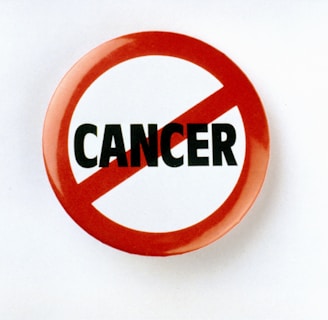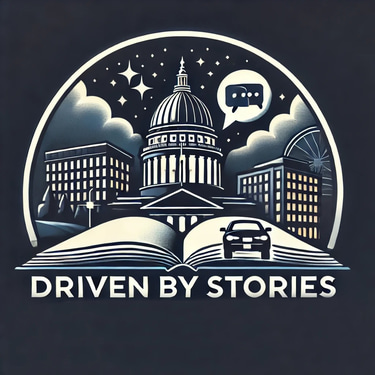The Night Shi(f)t
Most people don’t think about the unseen workers who keep the world running—especially the ones handling the tests that could change a life. But one late-night Uber ride with a quiet, exhausted lab tech made me realize just how much survival depends on the people we never meet.
5 minute read
This story unfolds in the quiet hours of early morning—a time most would still call night—when the world slows down, and a man with an unusual job does his part to keep science moving forward.
Matt slumped into my Uber, hoodie drawn tight against the cold. He worked for a well-known, Madison-headquartered cancer screening company, but his job? Sampling stool specimens.
“Non-invasive colorectal cancer detection,” he explained, then, with a sigh, “Or, you know, poop in a box.”
I chuckled. He didn’t.
“You like it?” I asked, glancing at him in the mirror.
He shrugged. “It’s good work. Important.” A pause. “Mostly.”
That "mostly" lingered, heavy with something unspoken. I assumed I understood—at least, I believed I did. There must be a particular kind of solitude in working with specimens instead of faces, in handling pieces of someone’s fate without ever knowing the person they belong to.
Maybe that’s why his job stuck with me more than he realized.
Because once, I was a sample myself.
The memories came flooding back. It was the second day of 2008, and I was working at a logistics company—“Oops,” as I like to call them. My own night shift involved less science and more back-breaking box-hauling under fluorescent lights. The conveyor belt was overloaded, as always, and in the middle of pushing a package into place, I got hurt.
A sharp pull in my groin. A lump.
Hernia, I thought. Great.
But then, I had a strange thought—a grateful one. My now-husband—then domestic partner, because gay marriage wasn’t yet legal—had just gotten benefits through his company on January 1. Less than 24 hours later, I needed them.
Later that day, I sat in a hospital room while an exhausted surgeon pressed his fingers against the lump and muttered,
“Could be a cyst. Could be cancer. Good luck.”
That’s how I found out.
The biopsy came next. Then the phone call.
“You have cancer.”
Three words, delivered with a practiced softness, like a routine confirmation at a drive-thru—but this was no ordinary order.
In the moment, I had a strange adrenaline rush; it’s a very weird sense of excitement. But it falls away quickly. Very quickly.
I stayed composed long enough to dial my husband, Mark. The moment he picked up, my breath caught in my throat. A pressure built behind my ribs, rising so fast I couldn’t stop it. I opened my mouth to tell him, but the words collapsed into something raw.
A sound I didn’t recognize.
A howl, deep and broken, that scraped against my ribs and clawed its way out.
I was still gripping the phone when Mark said, gently, “I’m here. Always.”
I don’t remember the rest of that night. Just Mark’s voice threading through the panic, steady and certain, like a rope pulling me back.
The test results were clear. Hodgkin’s lymphoma.
“Good cancer,” they said. Highly treatable. Survivable.
But treatable doesn’t mean easy, and survivable doesn’t mean painless—no one warns you what chemo takes. The nausea that never fully fades. The metallic taste that lingers on your tongue. The way pain settles deep in your bones, pinching your fingers and toes with invisible vice grips.
Even my laughter felt like it belonged to someone else.
Now, sitting behind the wheel, I glanced at Matt again. He was staring out the window, hands in his pockets. His job was quiet. Unseen. But it mattered.
“You know,” I said, breaking the silence, “when I had cancer, I never thought about the people handling my tests. The ones making sure the results were right. People like you.”
He blinked, caught off guard. “Yeah?”
“Yeah,” I said. “You’re part of someone’s survival story. Even if they never know your name.”
He exhaled a short laugh. “You know what’s funny?” he said.
“What?”
“The words ‘night shift’ and ‘night shit’ are way too close for comfort.”
I laughed. “I was thinking the same thing but didn’t want to say it first.”
He grinned, just a little.
At his stop, he hesitated before getting out. “Thanks,” he said, voice softer than before.
“For the ride?” I asked.
“For saying that.”
As I pulled away, I thought about the countless people like him—working unseen, making quiet differences in lives they’ll never touch.
The lab techs, the night shift workers, the ones who keep the world running while the rest of us sleep.
Because survival isn’t just endurance. It’s connection. It’s knowing that somewhere, someone is working—whether they know it or not—to help keep you alive.
Author’s Note: This is a work of creative nonfiction. While the events and emotions are true, some details have been adjusted for clarity, and names have been changed to protect privacy. Creative nonfiction blends fact with literary technique—dialogue, scene-setting, and reflection—to shape real experiences into a compelling narrative.


